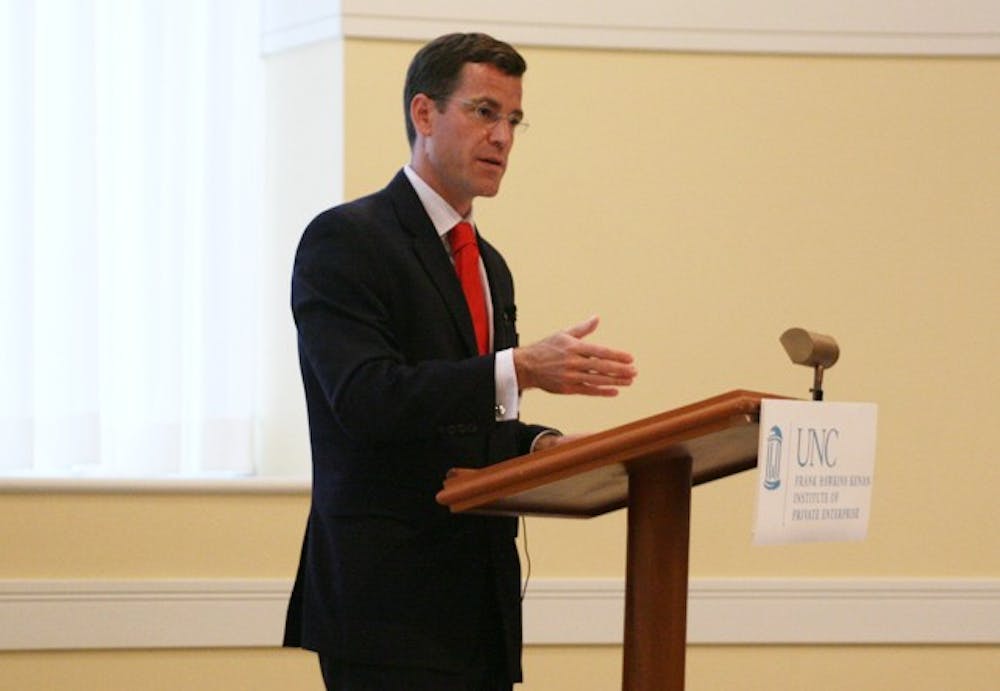African economic growth has skyrocketed in the past decade, and UNC alumnus Tom Woods thinks America needs to beat competitors to the continent.
Woods, the deputy assistant secretary of state for Africa from 2004-06, gave a lecture Monday entitled “Winning in Africa: A Strategy for Success” about one of the world’s largest emerging markets.
A key purpose of the lecture was to encourage engagement in the region, as opposed to endless donations of humanitarian aid.
“In the news media (Africa) is portrayed as in a perpetual state of crisis,” he said. “This is not the Africa I know.”
Woods spoke about many opportunities for Africa as an emerging market, including joint business ventures in health development, infrastructure growth like increasing road linkages to help subsistence farmers sell their produce and revitalizing agriculture.
He said the latter point is one of major importance, especially in light of environmental crises.
Woods suggested that as the world moves toward green technology, Africa should play a much larger role in designing technology specific to the region’s climate, and said technology should be made in Africa instead of relying on imports.
“Capital is a coward,” he said, noting that ongoing conflicts in countries such as Sudan and the Congo, as well as other humanitarian issues, serve as major deterrents to prospective investors.
Due to the turbulent nature of certain areas, Woods said he separates countries into four categories: those with diversified economies, the oil exporting nations, those with transition economies and those that are pre-transition — a “euphemism for poor.”




